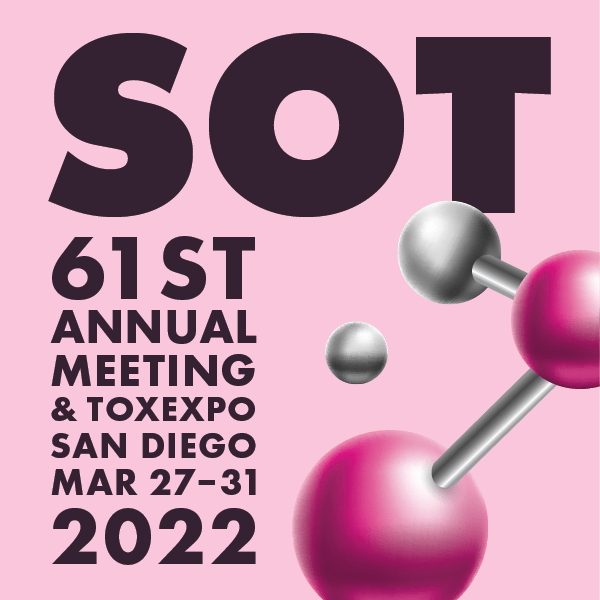
Prakash Nagarkatti, PhD, has received the 2022 SOT Distinguished Toxicology Scholar Award for his role in advancing the field of immunotoxicology and his outstanding efforts in mentoring early career researchers.

Dr. Nagarkatti received his PhD in immunology in 1980 from Jiwaji University in India and conducted his postdoctoral fellowship at McMaster University in Canada.
Dr. Nagarkatti has taught at the University of South Carolina for more than 15 years. From 2011 to 2021, he served as the Vice President for Research, reporting to the university President and managing a $280 million/year research enterprise. He currently serves as a Carolina Distinguished Professor and Senior Research Advisor to the President. In this capacity, he serves as a PI on a collaborative project with Battelle on a $3.8 billion contract, which he helped secure, from the Department of Energy to operate the Savannah River National Laboratory.
Despite his extensive senior-level administrative responsibilities, Dr. Nagarkatti has sustained highly impactful research and has taught for over 35 years. He has published more than 325 peer-reviewed papers with over 17,000 citations, making major contributions to advancements in the field of immunotoxicology. Dr. Nagarkatti has been continuously funded by grants from the National Institutes of Health (NIH) and other federal agencies for the past 35 years and has generated over $100 million in grants as a PI at the University of South Carolina since joining the university in 2005. He currently directs two NIH-funded Centers and one National Science Foundation–funded Center, along with numerous NIH R01 grants.
Dr. Nagarkatti’s contributions to toxicology have been transformative in both basic and translational research. He is considered a world leader in cannabinoid research and has made numerous groundbreaking, published, and highly cited discoveries on how cannabinoids attenuate inflammation and kill certain types of cancers. Dr. Nagarkatti also has worked extensively on cannabidiol (CBD) to treat inflammatory diseases. His work on use of CBD to treat autoimmune hepatitis received a patent that has been licensed to a pharmaceutical company and, importantly, was approved by the US Food and Drug Administration as an orphan drug to treat autoimmune hepatitis.
Dr. Nagarkatt’s lab also is engaged in research involving new drug discovery from botanicals, studying the effect of botanicals on autoimmune diseases and cancer. These studies have led to pioneering findings on how dietary compounds can modulate changes in the epigenome and microbiome, thereby inducing an anti-inflammatory phenotype.
In addition to making exceptional research contributions to advance toxicology, Dr. Nagarkatti also is an outstanding academic leader. During his teaching career, he has mentored 44 graduate students, 29 postdoctoral scholars, and 35 junior faculty as well as 36 international scholars from more than 15 countries. His trainees have been successful in attracting NIH R01 Supplements and independent grants.
Beyond his academic duties, Dr. Nagarkatti actively participates in societal responsibilities as a scientist. He is engaged in educating the public about the risks and benefits of cannabinoids and the role of endocannabinoids in the regulation of health and disease. He has provided expert opinion through a variety of news outlets—including BBC News, a PBS documentary, and The Conversation—and has served on the USA TODAY COVID Vaccine Panel. On numerous occasions, he has provided testimony on cannabinoids to the South Carolina Senate.
Dr. Nagarkatti is a Fellow of the American Association for the Advancement of Science, the Academy of Toxicological Sciences, and the National Academy of Inventors. In addition to these fellowships, he has been an active SOT member since 1987, during which time he was instrumental in establishing the Association of Scientists of Indian Origin Special Interest Group. Publications from his lab have been recognized with the best paper award from numerous SOT Specialty Sections, and he was the recipient of the 2016 Vos Lifetime Career Achievement Award of the Immunotoxicology Specialty Section. He is the 2021–2022 Chair of the Endowment Fund Board.
2022 SOT Distinguished Toxicology Scholar Award Lecture: Unraveling the Mystery of AhR: From Suppressor T Cells to Epigenome and Microbiome
Tuesday, March 29, 11:00 AM to 12:00 Noon
San Diego Convention Center, Ballroom 6A

Dr. Nagarkatti will deliver the 2022 SOT Distinguished Toxicology Scholar Award Lecture during the SOT Annual Meeting and ToxExpo. The lecture abstract is as follows:
The aryl hydrocarbon receptor (AhR) was identified in the early 1970s as a receptor for the environmental contaminant TCDD. In the early 1980s, I discovered that AhR activation by TCDD induces suppressor T cells, which inhibit the immune response. However, studies on these suppressor T cells had to be abandoned because no markers existed at that time to identify such cells. In 2001, FoxP3 was identified as a master regulator of suppressor T cells (now called Regulatory T cells or Tregs), which rekindled the research on AhR and Tregs. Our lab demonstrated that AhR activation induces epigenetic changes involving hypo- and hyper-methylation of FoxP3 and IL-17 genes, respectively. Also, AhR activation led to regulation of miRNA, which directed the induction of Tregs versus Th-17. In 2019, we made an exciting observation that activation of AhR by TCDD induces massive numbers of highly immunosuppressive Myeloid-derived Suppressor Cells (MDSCs). We also studied dietary AhR ligands including Indole-3-carbinol (I3C) and characterized how these would alter the epigenome and microbiome in suppressing inflammation. In summary, our research on AhR that had started in the early 1980s on suppressor T cells had turned a full circle and led to a better understanding of how this environmental sensor can regulate inflammation through multiple pathways. There are many questions that remain unanswered, such as how some AhR ligands like TCDD can be so toxic and carcinogenic while others like I3C can have precisely opposite effects. Such an understanding will lead to the control of inflammatory diseases and cancer. Supported by NIH grants P01AT003961, P20GM103641, R01ES030144, R01AI129788, R01AI123947, and R01AI160896.
#Communique:SOTNews#Communique:AnnualMeeting#Members#Awards